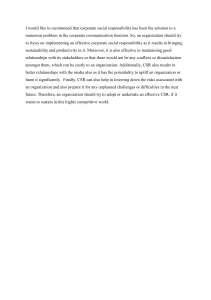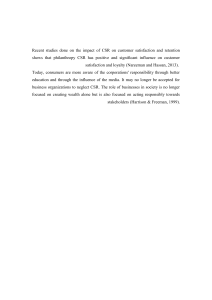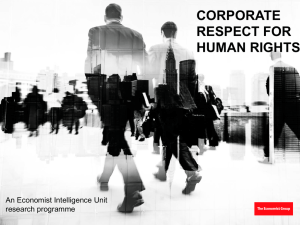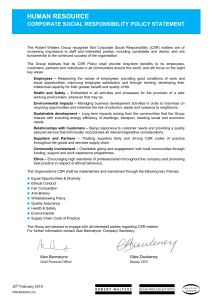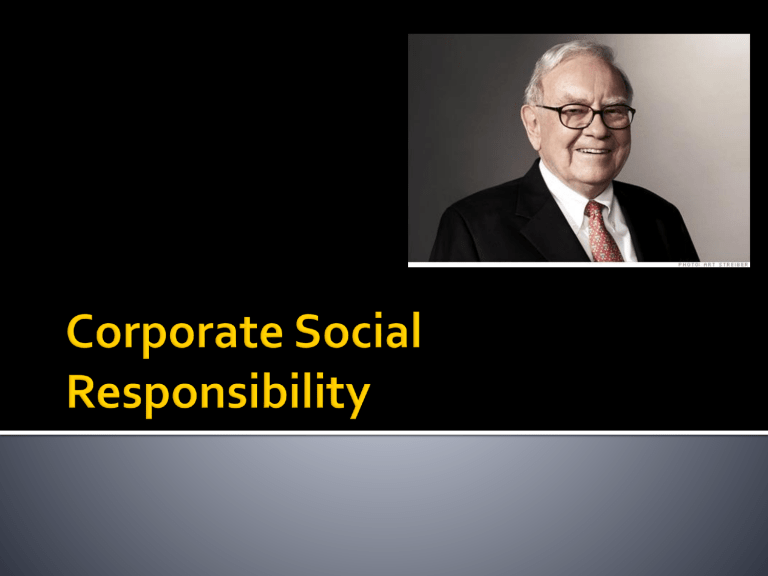
Corporate social responsibility has become a hot business topic in recent years and many well-known business people have expressed their support for it: “It takes 20 years to build a reputation and five minutes to ruin it.” Warren Buffett “The business of business should not be about money, it should be about responsibility. It should be about public good, not private greed” Dame Anita Ruddick Body Shop There are many alternative definitions of CSR. An obligation, beyond that required by the law, for a business to pursue long term goals that are good for society About how a company manages its business to produce an overall positive impact on society Corporate social responsibility (CSR) is about understanding your business' impact on the wider world and considering how you can use this impact in a positive way. (Business Link) Conducting business in an ethical way and in the interests of the wider community Responding positively to emerging societal priorities and expectations A willingness to act ahead of regulatory confrontation Balancing shareholder interests against the interests of the wider community Being a good citizen in the community The answer is yes and no! There is clearly an overlap between CSR and business ethics: Both are concerned with values, objectives and decisions based on something other than the pursuit of profit Socially responsible firms must act ethically The difference is that: Ethics concern actions which can be assessed as right or wrong by reference to moral principles CSR is about the organisation’s obligations to all stakeholders – and not just shareholders Economic: Responsibility to earn profit for owners Legal: Responsibility to comply with the law Ethical: Not acting just for profit, but doing what is right, just and fair Voluntary and philanthropic: Promoting human welfare and goodwill. Being a good corporate citizen contributing to the community and quality of life Following the codes of practice that embody moral values. The objective is to do the right thing, acting with honesty and integrity and taking into consideration the interests of everyone affected by the decision. Social Audits: highlights the progress, or the lack of it, of a business that is committed to acting responsibly towards all its stakeholders. The audit process allows employees to feel that their values and concerns are considered alongside other stakeholders. These audits are the outcomes of ‘social accounting’ To be successful in these audits, there must be clear aims, goals, and a vision. Shell, BT and the Co-op Bank have used this approach.

